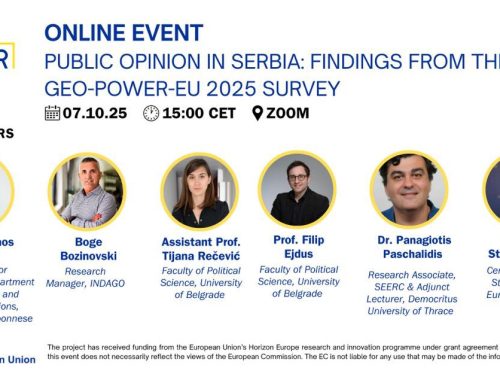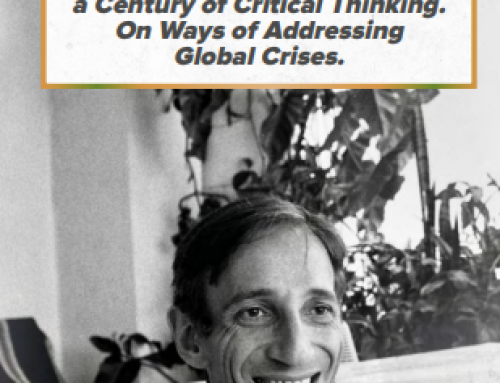The RECAS Fellowship Program, hosted by the Universities of Belgrade (IFDT) and Rijeka (CAS SEE), is expanding to the Western Balkans region.
Building on the success of past initiatives, this program aims to connect academics and researchers across the region with the academic and policy community. Supported by the University of Rijeka and Belgrade, the main aim of this program pillar will be to provide opportunities for academics and researchers from the region with the academic and policy community in the region (public administration, civil society, media).
This program aims to inspire researchers to conduct research and share their findings within regional university centers, fostering an academic network in the Western Balkans. The program provides support and resources from the University of Rijeka and Belgrade, with co-hosting options at universities in Skopje, Sarajevo, Pristina, Tirana, and Podgorica.
The thematic focus of the program is on issues related to European integration and regional cooperation, social and economic justice, digital transformation, as well as managing overarching social consequences of these megatrends. The theme for the 2024 Fellowship Program is “Towards a Culture of shared future in Southeast Europe”.
Every society needs a vision for the future. Societies in Southeast Europe seem to be caught in the vicious circle of the permanent present built on the remnants of nationalist and exclusive accounts of the past – with a progressive vision missing. Zygmunt Bauman’s notion of “retrotopia” translated into regional politics would equal inspiration of the old-fashioned type of politics-focused not on a future-to-be-created, but on an abandoned and undead past made of the residual heat of the exclusive nation-state idea, utterly authoritarian vision of the society, hierarchical decision-making processes led by a strong man, a clientelist economy, with total neglect of progressive, ecological, gender-sensitive and just visions of society to boot.
The focus on confronting the past through legal processes, while essential to personal and criminal responsibility for war crimes, has had little effect on broader public attitudes, and the cathartic impact has been largely absent. Instead of fostering solidarity, regional friendship and unity, governments fuel divisions based on ethnic principles and a sort of self-imposed political segregation of ethnic groups. As a result, any “non-nationalist” politics look like naïve idealism. Progressive actors, struggling to make inroads in confronting the past, find themselves losing hard-won ground. Revitalization of a positive European vision is crucial. The region desperately needs visions and policies that advocate for civic, democratic, multi-ethnic, multi-confessional, open, plural, and inclusive societies within the region.
To confront the past, looking back is not enough. Cultivating a culture based on facts, mindful of the past and allowing productive oblivion is indispensable. Yet, equally important is to formulate and foster a “culture of a shared future” in the region – bringing forward narratives, evidence, and politics to replace a culture of hostility with a common vision of a joint future.
This project is supported by OSF Western Balkans, ERSTE Foundation and Rockefeller Brothers Fund.






